Introduction
Frank Turner is an English singer and songwriter whose music I have loved for years. His songs are wild and varied, sometimes sad and sometimes happy but always somehow life-affirming. He is a patron of Humanists UK and his secular and humanistic style, while rarely explicit, shines through all his music (at least to my ears). His tenth studio album, ‘Undefeated’, is out on 3 May, and in February I interviewed him about it.
Topics covered include Frank’s artistry; humanism and atheism; history and cancel culture; the greatness of Leonard Cohen and Taylor Swift; raucous middle age; the perils of social media; and defiance.
The Freethinker has not interviewed many creative artists lately. As someone who believes that godlessness and art are entwined, in that art is one of the things that makes life in a purposeless universe worth living, I could not resist the opportunity to talk to Frank. As such, this interview might feel a little different—not least because there is a lot more casual swearing than usual. So, be warned. Frank is a rebellious singer with a punk background, after all. Indeed, his individualism, discussed below, is an example of freethinking in an artistic context.
I have also tried to keep the informal verbal flow of the conversation intact in the edited transcript. Selected audio excerpts are included alongside the transcript.
You can pre-order ‘Undefeated’ here.
Interview
Daniel James Sharp: ‘Undefeated’ marks your return to independent music and it was recorded in your home studio. Why did you make that choice and what effect do you think it has had on your music?
Frank Turner: It’s a funny thing, the whole independent label business, because I’m not sure how much anybody else really cares about it. But it’s important to me. I have always been with Xtra Mile Recordings. For five records, starting in 2012, I was licensed to Universal Music Group, the world’s biggest music company. It was an experiment, and I expected it to last for maybe one album. I imagined I’d be dropped instantaneously!
I am quite proud that I finished my deal rather than getting dropped. At the end of the deal, they were keen to continue, and I was not. I don’t have any ill things to say about the past, but it felt like the right moment to return to the warm embrace of the independent world on the label side of things, and I feel very good about it.
It’s not that I was ever really creatively constrained per se in the licensing years. But there were moments when I had to expend some firepower, if you like, on maintaining my creative independence, and that is no longer the case. I’m the wild, drunk captain of my own ship now, and very nice that is too.
So I have now produced a record, which was awesome. That is not to say that I think I should have produced all my albums—that’s not true at all. Another part of it is that one of my lockdown projects was to learn how to produce music in order to produce other bands, and I’ve been doing that with the likes of The Meffs, Pet Needs, and Grace Petrie, among others. And I thought, ‘Wait, hold on, I could do this for myself.’ And I had demoed my last few records in more and more depth before the recording. So even for my previous album ‘FTHC’, it was a process of replacing my demo tracks with better quality, better-played performances. And I thought, I can supervise that. My band are amazing, they can be part of that. And on we go.
I don’t want to use the word ‘comfortable’ because that sounds kind of flaccid, somehow. But I feel confident in where I’m sitting creatively at the moment, and that feels good, and I feel like I’m putting my best foot forward.
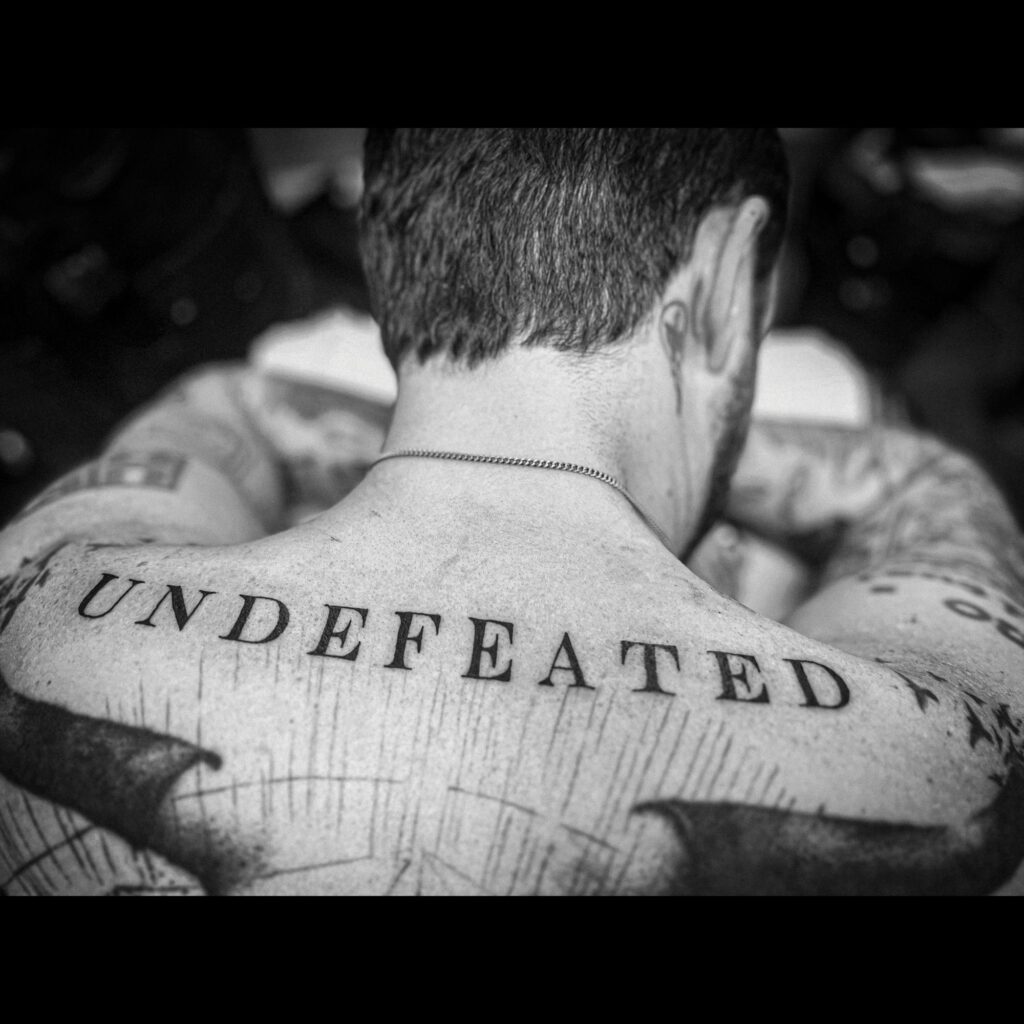
On your blog, you wrote that you ‘still have something to share with the world’ in ‘Undefeated’. So, what exactly is it that you want to share?
It’s important to say that it’s entirely legitimate for certain sections of the world to say that they don’t give a fuck about what I want to share, and that’s all good.
In ‘Undefeated’ there is a lot of stuff about nostalgia. There was a moment in time when it was going to be a concept record about an argument between me and my 15-year-old self. It didn’t quite stay that high concept, which is probably for the best. But there is a fair amount of that kind of thing running through the creative DNA of the record. And there are songs about impostor syndrome, life in the creative arts, London Tube stations. So, lots of different things!
I try to be quite strict on checking myself on whether I am repeating myself, or whether I am making a record just because that’s what I do. That seems robotic to me. And it seems creatively indefensible somehow. People can argue as to how successfully I’ve checked myself on this. But personally, I feel that I have new things to say, and people can listen to the songs and judge for themselves.
You are very keen on having a distinctive creative voice in your music. One of the pre-released songs from ‘Undefeated’, ‘No Thank You For The Music’, is very much about having an individual voice and having things to say as opposed to bowing to musical conformity. Where does that spirit come from?
I had the fortune or misfortune (to be decided at a later date) of being obsessed with punk and rock music when I was growing up. There is a sense of independence and defiance and rejection that comes with a lot of that music—everything from The Clash to the Sex Pistols and Black Flag through to all the modern stuff like Bob Vylan.
I would also say that in terms of making a life out of being a writer and being a performer and all the rest of it, I don’t really see the point unless I’m doing it on my own terms. I’m not trying to complain about my lot in life. There is a fair amount of costs in my cost-benefit analysis of what I do, but the benefits vastly outweigh the costs. That is why I still do this. It’s fantastic. I’m very privileged. I’m not complaining. But if I was not free to have my own voice and to be my own writer and my own artist, then I’m not sure what the point of doing any of this would be for me. I’ve never been doing this because I want to be famous or because I want to be rich—fucking lol [as in ‘laugh out loud’, pronounced ‘lawl’]. The sense of being under my own steam is very much the point.
‘No Thank You For The Music’ is a bit of a ‘fuck you’ to the gatekeepers of this world, and I’m very proud of it. I’ve always thought the idea of ‘cool’ in the creative arts was dumb. Fuck off! What does that even mean? And how lame would you have to be to care? More than a few times in my career, people have attempted to throw the insult at me that what I do is not ‘relevant’. I just think, what kind of a fucking loser cares about whether art is, quote-unquote, relevant. I don’t listen to music and I don’t engage with other types of art while looking over my shoulders to check whether other people agree with my opinion. Don’t be such a fucking coward.
There are people who make it their business to try and gatekeep what is and isn’t ‘cool’ or ‘in’ or ‘hip’ or ‘permissible’. I just think that that is laughable. Those people should be laughed at. I think that they should be hounded from polite society with jeers. Just fuck off and leave everybody alone. I hope that that comes through in the way that I present my music, but it’s also about how I listen to music and how I engage with music as well. And I hope that younger people have the courage to ignore those types of people.
I love the line ‘Bees shouldn’t waste their time telling flies that honey tastes better than shit’.
I must admit, and in public for the first time [this interview was conducted on 8 February 2024], that that is actually a line from a friend’s grandmother. When I heard that, I thought, ‘I am putting that in a fucking song, goddamn.’ Credit where it’s due!
You are a patron of Humanists UK and, though your music is not explicitly godless (with some exceptions, like 2011’s ‘Glory Hallelujah’), it is very secular and humanistic. It’s about the love of life and humanity in the here and now. Is that conscious on your part?
It’s a reflection of how I see the world. My maternal grandfather was a priest, and he was a very smart and a very wise man, and I loved and respected him very much. In a way that the historian Tom Holland would endorse, I’m obviously culturally Christian—that is, in the way that Western culture broadly is post-Christian at the very least, up to and including modern progressivism. So that informs the way I see the world. But I don’t believe in the supernatural. I think that nature is super enough, thank you very much! But I’m wary of getting too deep into the Richard Dawkins, Christopher Hitchens type of angry, finger-pointing atheism. That just seems a little needless to me a lot of the time.
‘Glory Hallelujah’ was intended as a sort of atheist hymn. But at the same time, I never really wanted that to be my central cause in engaging with the world. But we play it from time to time and people enjoy it.
Occasionally I get people who write me letters telling me that I’m going to hell. We got protested in Norfolk, Virginia, many years ago by some evangelical Christians who said that I was Satan. As somebody who grew up listening to Slayer and Iron Maiden and the like, I thought that was fucking awesome. It made my day. An absolute career highlight.
I think that ‘humanism’ is a useful word, though in many ways it is quite a nebulous word. The idea of attempting to engage with the world in a morally and ethically coherent way that is not reliant on theism, broadly writ, is something that interests me, and something that I support. But again, I’m at pains not to batter people over the head with this stuff.
There’s a clergyman in the US who writes appreciatively about me and my music, and I think that’s great. I think it’s lovely. A little bit more pluralism and ecumenism in the world at large would be a good thing. I’m very comfortable hanging out with people who I don’t 100% agree with. And I think more people should get behind that.
And that clergyman isn’t the only one. There is a Catholic guy, a friar I think, who writes me private correspondence. He sends me long philosophical discourses which, when I have the free time to engage in philosophical debates, I will get into. There’s a lot of mutual respect in the room, I like to think. I find it very flattering that somebody wants to engage with anything that I put together in that kind of depth. It’s like, ‘Jesus Christ, dude, you’ve thought about this a lot!’
I absolutely agree about engaging with people who disagree with you. As it happens, we’ve published a few articles quite critical of Holland’s views on Christianity recently.
The first thing to say is that I’m an abject fanboy for The Rest Is History, the podcast Holland and Dominic Sandbrook host. I think it’s phenomenal. I’ve been to see them live. I want to be their friend! They’re very good, and their approach to history is refreshingly dogma-free. History is something I care about a lot.
I remember that there was a wonderful moment when I saw them live. Sandbrook commented that the business of being a historian is not a judgemental business. We shouldn’t judge the behaviour of people in the past and weigh them in a balance and try to find ways of feeling superior to them.
That’s a misapprehension of what the study of history is supposed to be, in my opinion, and indeed in Sandbrook’s opinion, and it was quite comforting to hear somebody say that and see him get a standing ovation for it. That gave me a little bit of hope because the flipside is a kind of airbrushing, Maoist approach to history (and I know that’s a loaded description). That approach is bad news, both for our own historical record and culture and for the people who engage in that way with the world. I don’t think it’s very healthy.
Another pre-released song from ‘Undefeated’ is ‘Do One’, which is another ‘fuck you’ type of song, isn’t it?
I’m glad you put it that way because I think it is a ‘fuck you’ song. ‘Do One’ is the first song in the album, and the first line sets the tone: ‘Some people are just gonna hate you’. There’s a wonderful quote that I read a few years ago, which was very psychologically useful to me, which came from, of all people, Eleanor Roosevelt. She essentially said that it takes two people to be humiliated. Ultimately, to be hounded, cancelled, chained, or whatever word we want to use, you have to agree to play the game on some level. And there’s something really liberating about being able to say ‘fuck off, I’m not playing.’
In the grand scheme of things, it’s pretty unimportant, but I’ve had people come at me on various issues over the years. There have been times when it was fucking horrible, and deleterious to my mental health, and there have been times when it has felt really unfair and done in total bad faith.
There have been times when I have felt that people were picking up on an ill-phrased thing that I said. I do think it’s important to take that on board sometimes, but more often than not it’s a bad-faith form of argument.
It’s been something I’ve spent a lot of time wrestling with and being affected by. And, as I say, it’s been catastrophic for my mental health at various times. But there’s something liberating about just saying, ‘don’t care, not playing, will not engage’. In practical terms, I don’t reply on social media and I don’t read the comments.
There were days when I would be losing my fucking mind because of a couple of tweets from someone. And my wife would just be like, ‘What are you doing? Stop caring about this one person.’ That’s the other thing about the human mind. You can scroll past a hundred people telling you you’re great, but one person calls you a bastard and three days of my life goes down the toilet thinking about it.
So the point of ‘Do One’ is essentially that I’m not playing that game anymore. And it took me more time than I would like to admit to figure that out, as the song says. I don’t want to be one of those people who just feeds off the hatred. With a certain kind of mindset, the people coming at you just become flies bouncing off a windscreen. You sleep better once you reach that point.
I think I have learned how to pick my battles a bit. There are days when one wants to engage with the good-faith arguments. In my line of work, it’s easy for people to confuse bad faith cancel culture and legitimate criticism, and I try to steer the right way through that. I’m certainly not above being criticised in terms of my ethics and actions and music.
I’m actually really interested in good music criticism. There have been times in my life when I’ve read a critique of an album of mine and I think, ‘Yeah, that’s a fair point’. There’s value in that. Historically, you can look at some of Bob Dylan’s output as being part of a conversation with Greil Marcus. There are fewer and fewer music journalists who write music criticism at that level these days, which is a sadness, I think.
I’m not trying to sit here and say that I’m fucking perfect or anything like that, but hopefully, I can tune out the haters to a degree as well. In many ways, ‘Undefeated’ is saying, ‘I’m ten albums in, motherfucker.’ After that amount of time successfully touring and successfully releasing records, my music can’t be meritless. It’s landing with someone, otherwise I wouldn’t still be here.
So you feel that you have earned your place, to put it another way?
Hopefully, yes. I’ve got the scars to prove it.
You said of your previous album ‘FTHC’ that it was an attempt to be more rawly personal. Can the same be said of ‘Undefeated’?
I would say so, but in a slightly different way. I’m still at the point of figuring out the vocabulary to describe exactly what I mean by that. I’ve been using the word ‘defiant’ quite a lot. But ‘FTHC’ is quite an angry record, in retrospect. There’s a fair amount of bitterness in it. There are a lot of tracks about childhood and stuff that are not happy-go-lucky songs. In ‘Undefeated’, there is definitely a fair number of middle fingers being shown, but there’s a smile on the face at the same time. It’s a more fun place to be.
That’s not true of the whole album, though. There’s a track towards the end called ‘Somewhere Inbetween’ which is one of the rawest pieces of writing that I’ve ever done in my life. I’m both excited and nervous for that song to be released because I think that it’s…’unforgiving’ might be the word. Hopefully, the record is not monotonal, not monochromatic.
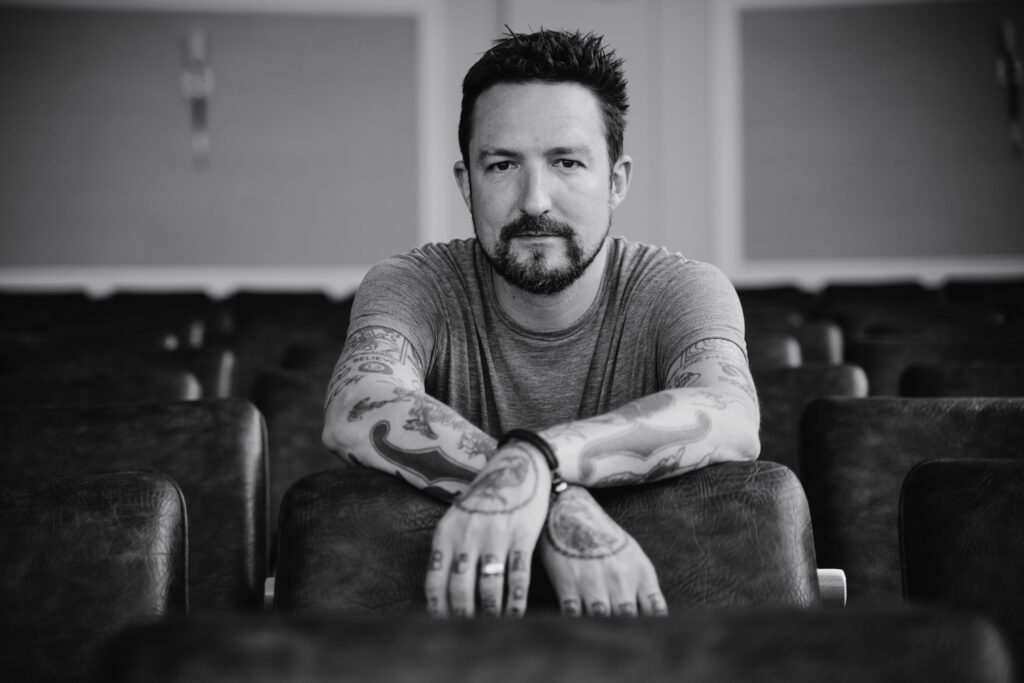
It’s an age-old question, and it applies to writers not only of music but of essays and memoirs and even novels, but how do you find the right balance? How much do you reveal? Can you ever fully reveal everything?
It depends on what type of art you are trying to make. I don’t think the Scissors Sisters spend very much time thinking about making confessional music, but they make great art. My taste of music leans towards the confessional, towards the raw and the brutally honest. Arab Strap is one of my favourite bands. I remember hearing their album ‘Philophobia’ for the first time, and just staring and thinking, ‘Is this motherfucker for real? Is he really saying this stuff out loud? Like, we can hear you, man!’ So I’ve always been interested in that sort of art.
There are constraints on it, of course, one of which is consideration for others. It’s perfectly legitimate for me to be as raw as I want about myself. How legitimate it is for me to be raw about somebody else in the public forum is a more complicated question. In 2013 I put out a break-up record that had 13 songs about one person, and she was not appreciative of that. And I think that that is a legitimate response.
It’s important to note that there is some artistry involved in the confessional style. I could sing out my diary, but I’m not sure anyone would give a fuck. The creative trick, the magic trick at the heart of it all in some ways, is to take the personal and make it feel universal, or at least that’s how it is in my corner of writing. Art is about empathy to a large extent, and I’ve spent most of my time as a writer trying to find a way of expressing my feelings that is useful, or that is interpretable, by other people who live different lives. I want it to be raw, and I want it to be honest, but I also want it to be accessible. And that’s a neat trick, and it’s not an easy one. If it was, we’d all be writing better songs. Finding that balance is tough. In a way, that’s the centre of my working life, looking for that balance.
At the risk of seeming entirely obsessed with songwriting, there’s a wonderful Leonard Cohen line—well, first we just need to establish the fact that Cohen was the greatest songwriter of the 20th century.
I’m so glad you said that—I completely agree! I say it all the time.
I like Dylan, but Cohen is an infinitely superior songwriter, in my opinion, and now people can shout at me. But the line is, ‘There is a crack, a crack in everything/That’s how the light gets in’. That’s one of the most profound couplets that I’m aware of in human writing. And it says something about the creative act as well. Finding that moment of damage can also be a moment of revelation.
Salman Rushdie once said of the first three lines of Cohen’s ‘Bird on the Wire’ that, ‘Put simply, if I could write like that, I would.’ That’s some compliment.
It’s interesting to compare songwriting with other kinds of writing. Songwriting is a more bite-sized medium to work in. I’m sort of terrified by the concept of a novel. The idea of trying to sustain a creative idea over that amount of linguistic output gives me the fear, I’ll be honest with you. But, as that quote sort of outlines, the flipside is that there is a concision to good songwriting. That’s the thing I enjoy sometimes, and I think that’s what sets songwriting apart from poetry. In a song, you’ve got eight lines before you’re back in the chorus, so whatever you’ve got to say needs to be said now. I suppose you could add another 25 stanzas, but then you end up being Genesis, and nobody really wants that. And Cohen is the master of that kind of concision. I actually have a ‘Bird on the Wire’ tattoo in reference to that song. And that line, ‘like a drunk in a midnight choir’, is the most perfectly concise image. And God rest his soul.
When you mentioned the break-up album, I thought, ‘Was that your Taylor Swift phase?’ And that makes me wonder if, looking back, you see distinct phases in your career?
Yes, there are definitely phases in my career. If you look at the career arc of many artists—like Neil Young, Bob Dylan, Springsteen, Costello, Nick Cave, people like that—there often tends to be a slightly odd middle-aged phase. Whether Dylan being a Christian or, indeed, Cohen producing great songs with Phil Spector in the late 1980s, but with terrible production, or Neil Young being sued for not sounding like Neil Young. There are these creative lull moments for many artists. Actually, one of the reasons I’m terminally obsessed with Nick Cave is that I think that he’s somebody who sidestepped that, and I’m curious how he did so.
Of course, it’s pretentious of me to compare myself to all the people I’ve just listed, but cut me a break. I feel like I’m in a moment where I’m trying to be raucously middle-aged. I’m 42. That’s definitely middle-aged. The world is full of variously named generations constantly trying to pretend that middle age and old age start later because they’re getting close to it. Fuck off, man, 42 is middle-aged! I’d like to be raucous and ill-mannered in my middle age rather than soft and flabby and reticent.
Grow old disgracefully.
Exactly.
Incidentally, it’s worth throwing in that Taylor Swift is clearly an excellent songwriter, musician, and performer, and I think that the general disdain within which a certain type of person in the music industry (and it’s usually a guy) holds Taylor Swift is so obviously sexist at this point. Just stop it now. (Just to be clear, I’m not talking about the MAGA conspiracy nuts here.) She’s the artist of her generation. That’s the fucking end of that conversation. She’s arguably bigger than Michael Jackson, now. And, like Michael Jackson was the artist of the eighties, and there is no one to compare, so too with Taylor Swift. I think she’s a great songwriter, and I just had to get that off my chest.
She completely screwed my album chart plans, because she’s putting out a record two weeks before mine is released. And do you know what? I’ll let it slide.
‘Undefeated’ is about middle age, as you mentioned. So, what’s it like being middle-aged? To what extent are you the same Frank Turner you were 20 years ago?
Aside from some very basic fundamentals, not much. And that’s how I want it to be. It’s a well-worn quote, but Muhammad Ali said something like, ‘a man who is the same at 40 as he was at 20 has wasted 20 years of his life.’ I don’t want to be the same person. There’s a curious sense of proprietorship that a certain type of music fan has that they want you to stay how you were when they discovered you, and I sympathize because I can see myself having that feeling about some musicians that I like, but also: fuck off, you’re boring! Life is about change, and I want to change and develop as an artist. I don’t want to repeat myself.
Again, this is not an original thought, but my experience of getting older is that there is a quid pro quo. Everything hurts more and hangovers last longer, and I spend more time worrying about sleeping than I used to—all this sort of shit—but I’m more confident in who I am and what I think about the world. That feels hard-won to me to a degree, and I’m grateful for it. And that feels like a direction of travel as well. I’m not sure that that’s a process that has reached its apotheosis for me just yet, and that’s fun. I like that idea. I like the idea of being in my 70s and really not giving a fuck. Good for me!
That reminds me of Rushdie again, who is one of my favourite writers—
I strongly agree, by the way. I think he’s absolutely sensational. I’ve just finished [Rushdie’s memoir] Joseph Anton and it was amazing.
Actually, I think it’s in ‘Joseph Anton’ that he says this: something along the lines of his 40s being a man’s prime.
That may be more true in the world of novels and fiction writers than it is in the world of musicians. But here’s hoping we can buck that trend.
Further reading on freethinking and secularism in art and music:
Porcus Sapiens, by Emma Park and Paul Fitzgerald
Reading list against nuclear war, by Emma Park
Can art be independent of politics? by Ella Nixon
Celebrating Eliza Flower: an unconventional woman, by Frances Lynch
Consciousness, free will and meaning in a Darwinian universe: interview with Daniel C. Dennett, by Daniel James Sharp
The rhythm of Tom Paine’s bones, by Eoin Carter



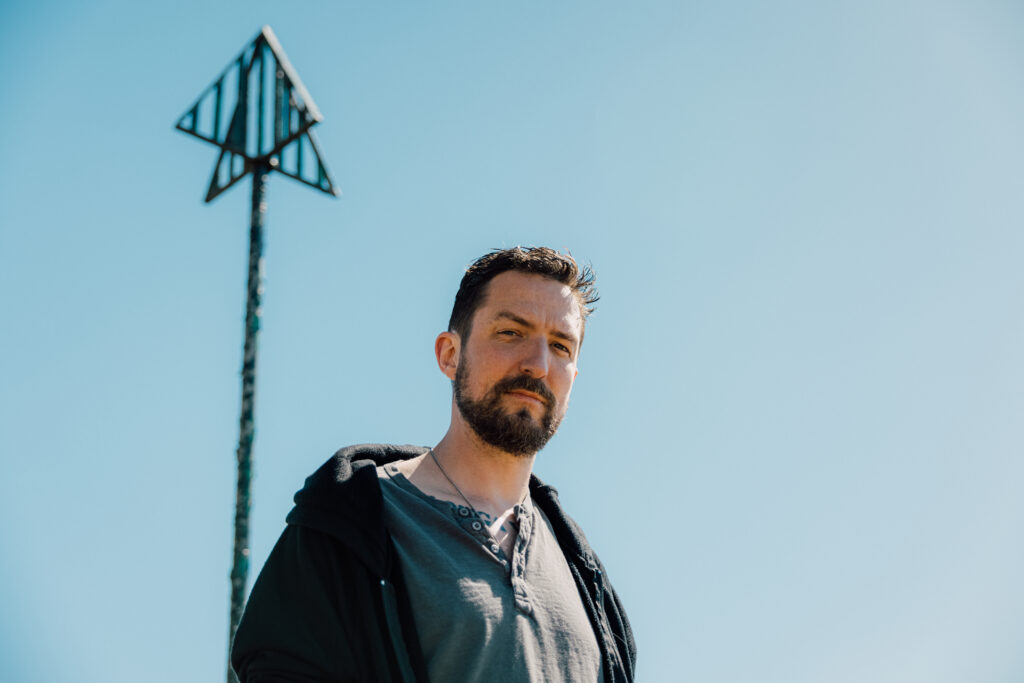

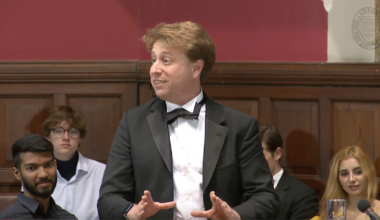
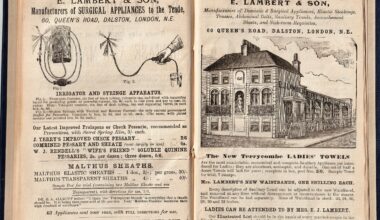
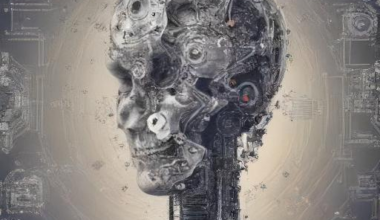


Your email address will not be published. Comments are subject to our Community Guidelines. Required fields are marked *
Donate